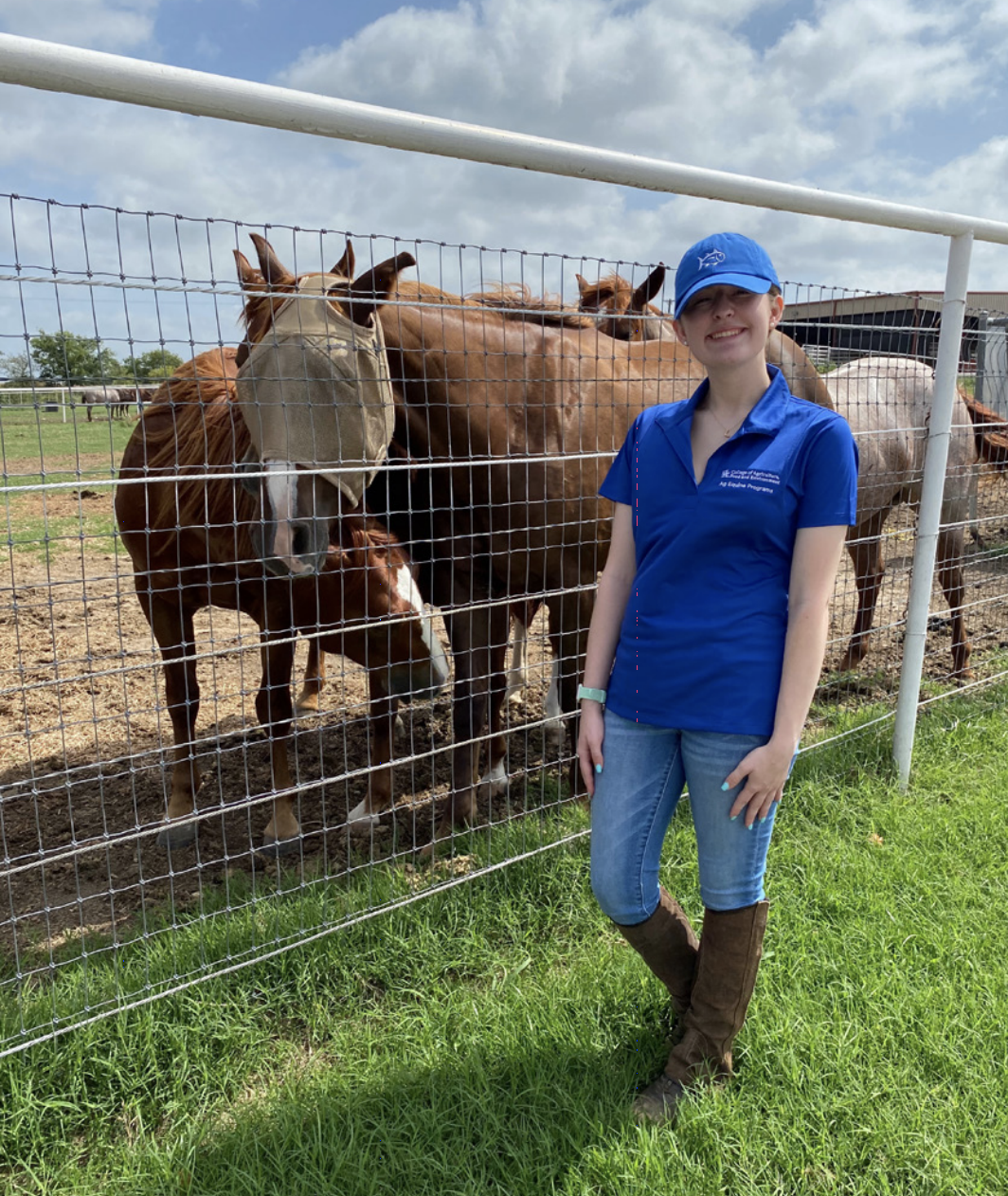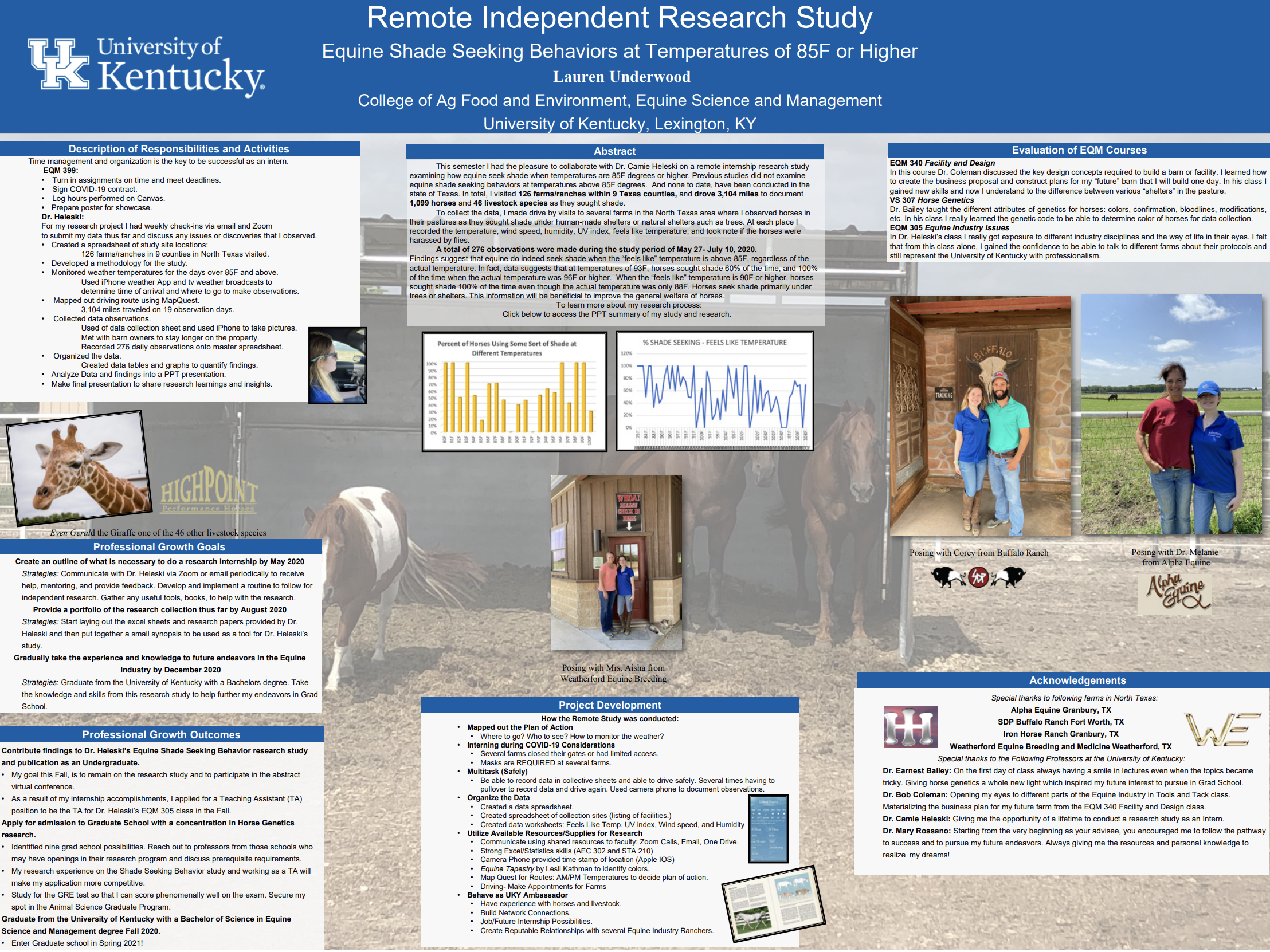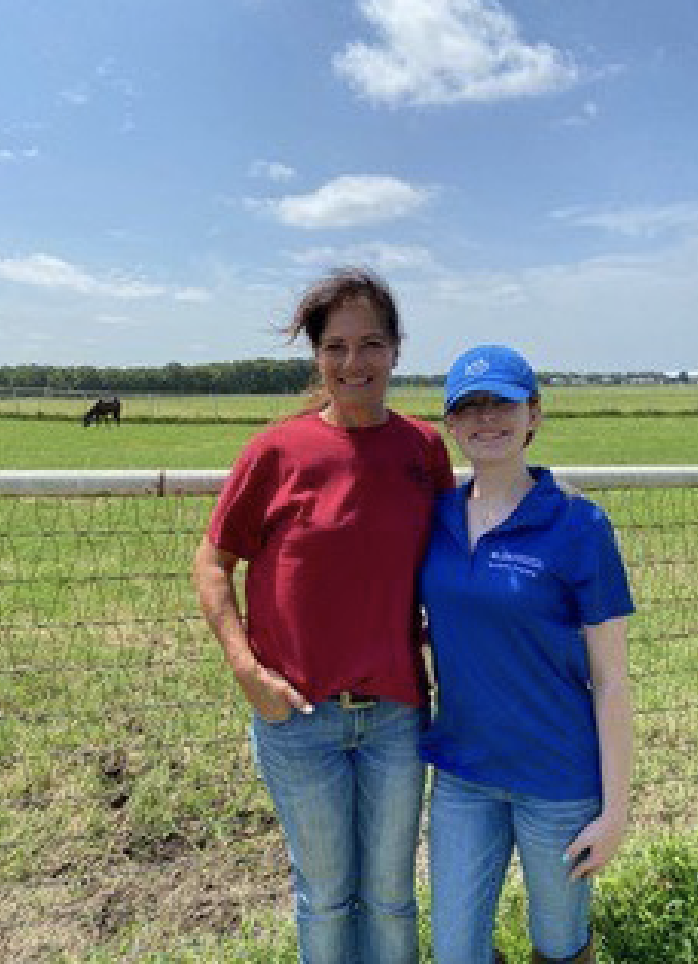If you Build it, Will They Come? Undergrad Research Project Studies Horses’ Inclination to Seek Shade at Certain Temperatures
When COVID-19 upended her internship plans, Lauren Underwood, undergraduate equine senior at the University of Kentucky, abruptly changed her focus and instead took an independent research project on the road to Texas.

Working under Camie Heleski, senior lecturer within the equine undergraduate degree program, Underwood began a quest to learn more about horses’ desire for shade when temperatures go higher than 85 degrees Fahrenheit and in the process not only fulfilled her internship requirement, but also discovered a passion for research.
With Heleski’s help, a new door was opened for Underwood in research in her home state of Texas.
During her project, Underwood visited 126 farms and observed the 1,099 horses that lived on those farms. She recorded the behavior of the horses during varying temperatures. She was most interested in learning if they would seek shade in temperatures over 85 degrees Fahrenheit.
Heleski had previously conducted this research in primarily northern states, but never as far south as Texas, where the heat index is substantially higher. Underwood was interested in replicating Heleski’s research in Texas.
Over the course of her project, Underwood visited nine different counties in northern Texas and drove more than 3,000 miles. In that time, she captured 276 behavioral observations in her data collection sheet.
Underwood found, in conjunction with Heleski’s earlier work, that the driving force behind horses seeking shade has to do with the UV Index’s effect on the particular horse in question. She determined that horses seek shade according to the “feelslike” temperature instead of the actual recorded temperature one might see on a weather app.
“I had the wonderfully good fortune to work with Lauren this summer on this project,” Heleski said. “The hypothesis at the outset was that as temperatures increase above 85 degrees Fahrenheit, horses will have an increasing motivation to seek shade, whether from trees or human made shelters.
“Though more careful statistical analysis is still needed, it did appear that as temperatures increased, a higher percentages of horses would seek shade. This was especially true on bright sunshine/ high UV days,” Heleski said.
Underwood also noted that when horses had a choice, most would seek out shade from trees more often than shade from human made shelters. Herd dynamics appeared to play an important role in when a given group of horses might move toward shade seeking.
“Shade inside the shelter or under trees may not be any cooler than in full sunlight, because the ‘feels like’ temperature is the same temperature in shade. Shelters do however, provide cover to block out sunrays from burning skin or bleaching out their coats,” Underwood said.
According to Underwood, the opportunity to conduct research as an undergraduate was an amazing experience, and one that set her future course.
“I feel like people go on to graduate school and haven’t experienced this,” she said. “So if you wait to figure out that, ‘Oh this isn’t for me,’ then you’ve already wasted money and time on it. If you’ve never done it, you just don’t know. And then if you have done it, you can say, ‘Okay this is like a vegetable, do I like it or do I not?’ and then you can decide whether to pursue it further. It helps to know that you are being a mini-scientist. When it’s something you’re interested and you care about, it makes a difference.”

She said she felt that it can be intimidating for students to travel this path because of the sheer amount of people they have to put themselves in front of.
Underwood said she got through this initial fear with a quote from the 2011 film, We Bought A Zoo, “You know, sometimes all you need is 20 seconds of insane courage, just literally 20 seconds of embarrassing bravery, and I promise you something great will come of it.

“When I was pulling up to these farms, I think it’s always intimidating meeting someone you have never met before. I would just tell myself, ‘I have 20 seconds, like 10 to open the door and 10 to start talking,’ and that would help me get through it.”
For Underwood, the research she did opened up new doors for her and let her explore what she wanted to do after she graduates this fall.
Her undergraduate research with Heleski will continue during the fall semester and she is excited with the newfound option of pursing research as a future career.
Her suggestion for students interested in undergraduate research? “Go for it my friends!”
Sabrina Jacobs, a senior majoring in equine science and management and minoring in wildlife biology and management, is a communications and student relations intern with UK Ag Equine Programs.
